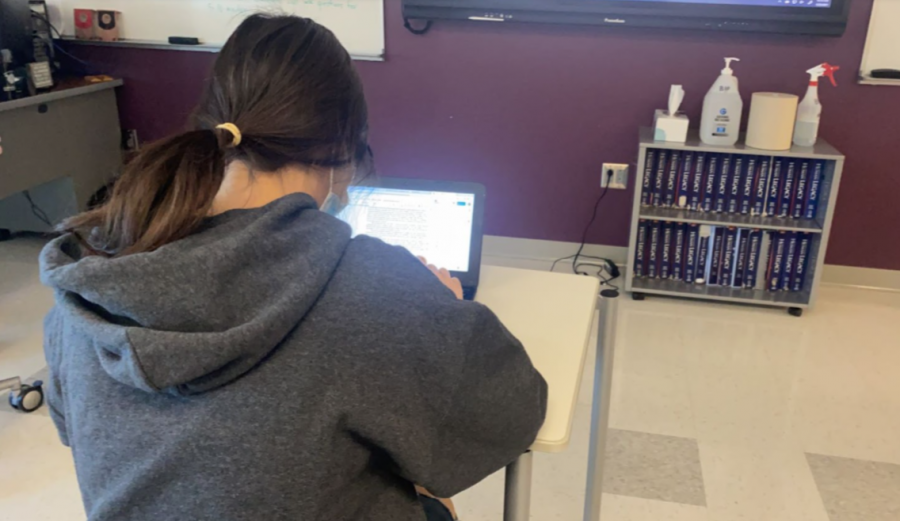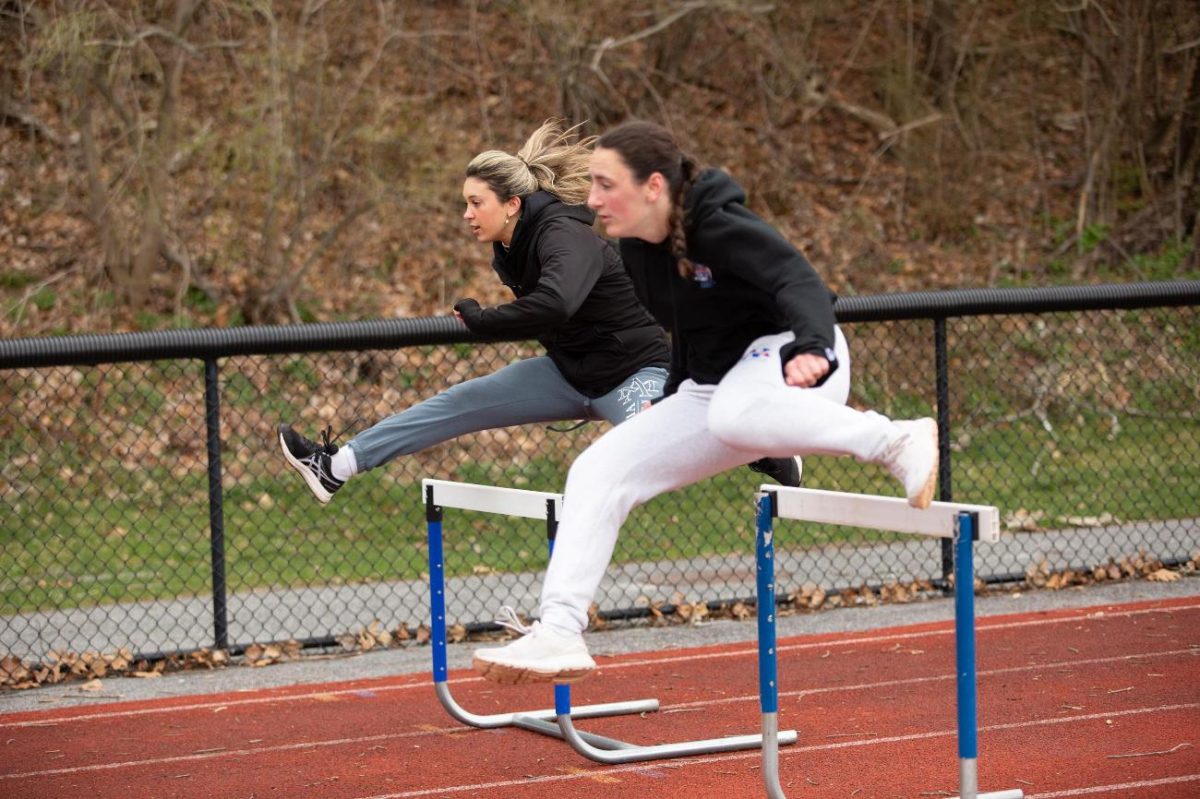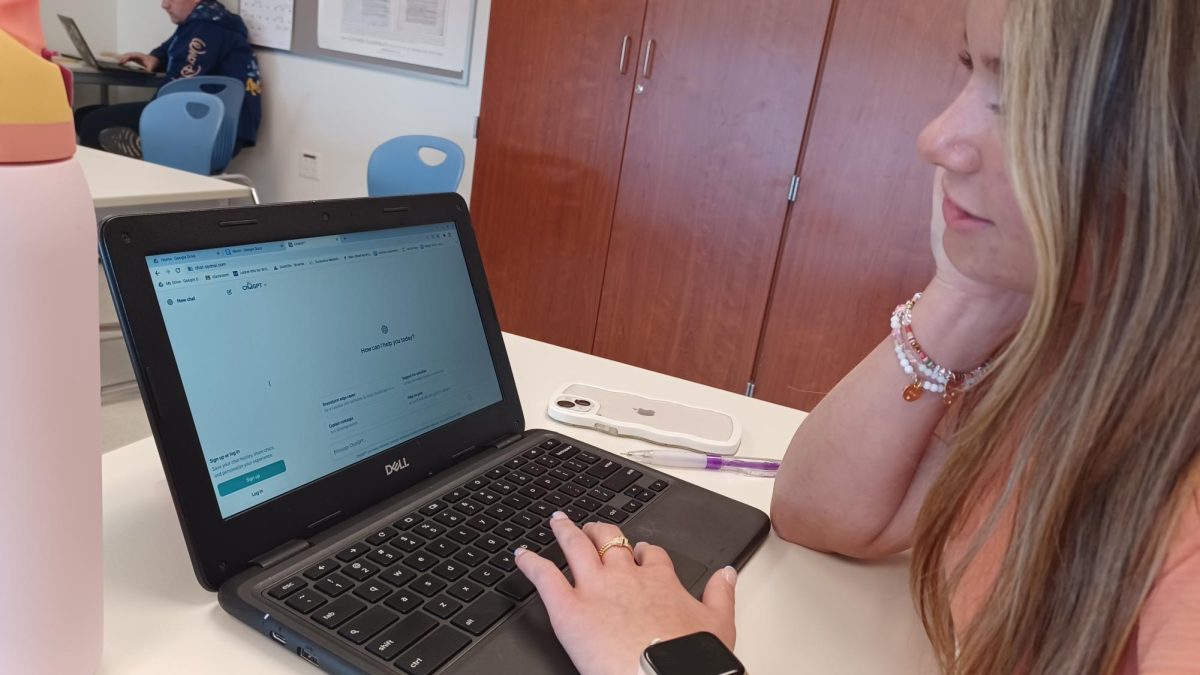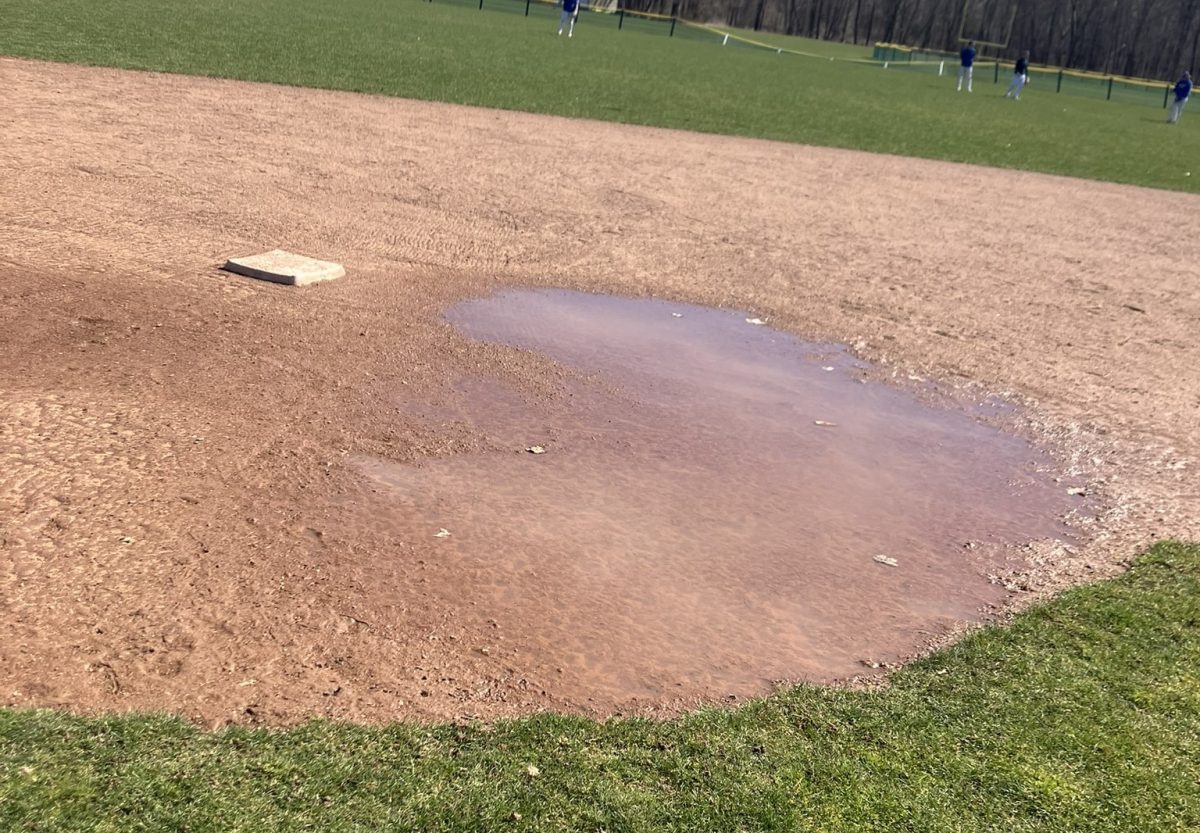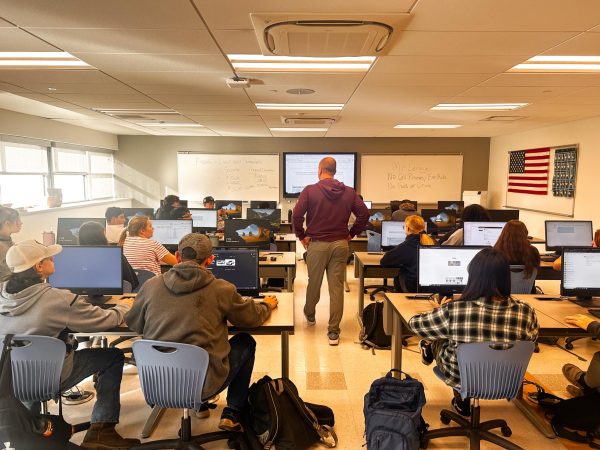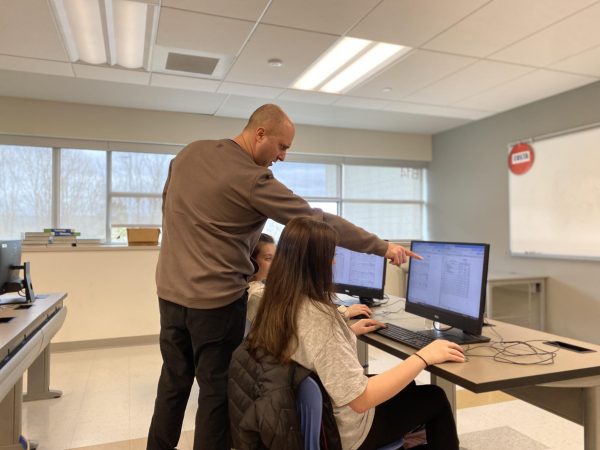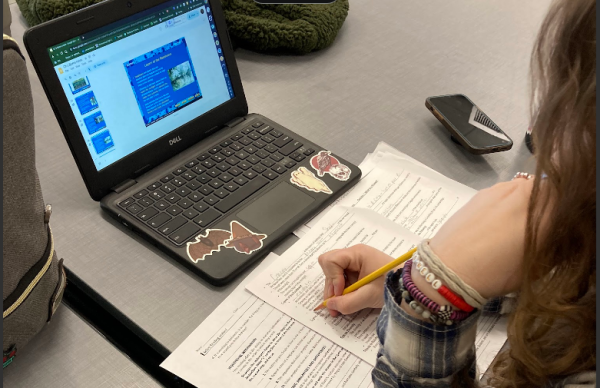BROOKS: Online Learning Causes Poor Grades, Mental Health, Sleep
Sierra St. George works on her Chromebook during class Jan. 25. Most Nonnewaug students have returned from all-remote learning, but Chromebooks are still a staple of classes.
January 27, 2021
Since the onset of the COVID-19 pandemic last March, students have dealt with the difficulties of living the school day at their homes.
The biggest difference between traditional and online school is the classroom setting. At a traditional school, students go from class to class each period and sit in assigned seats with many other students in one room. With the drastic change of having to do school by themselves at home, students had to adapt to the circumstances.
For many, the new format for their classes has left them with a lack of motivation that may affect their academic performance throughout the school year. Unable to plan for the pandemic, the lack of structure behind the online school system played a large factor in affecting students’ motivation. Students then struggled to pay attention in class and complete assignments, which caused a domino effect that affected physical and mental health.
Writing for The Beacon, Carlos Fuentes stated, “According to a study conducted in June, 75% of college students reported feeling more anxious or stressed due to online learning.”
Students feel heightened anxiety about maintaining their school work up to date. Other teenagers may have trouble concentrating or trying to focus while at home. For some teenagers and young adults, being on video in front of others can lead to their own anxieties. In addition, some students have had a hard time getting the extra support they need while being unable to talk to teachers.
Time management skills were left in school buildings, and meaningful social interactions went away with the rushed goodbyes to in-person schooling. There are several non-verbal cues to our brain’s process while we have in-person encounters — tone and pitch of voice, facial expressions, eye contact, and body language.
If picking up on these signals is now challenging or difficult, our brain must work harder to decode the information it gets. This will, on its own, trigger additional mental exhaustion.
Not only does losing social interaction skills affect the brain, but staring at a screen all day can lead to insufficient sleep at night.
According to NVISION, “A Harvard sleep study measured exposure to 6.5 hours of blue light to a similar amount and brightness of green light. Blue light inhibits melatonin production, a hormone that helps induce sleep, for twice as long as green light exposure. This altered circadian rhythms more — 3 hours for blue light compared to 1.5 hours for green light.”
Students looking at these blue screens all day may have trouble getting to sleep at night. Next, they’re unable to fall asleep at night and sleep through classes, adding onto the cycle of problems the online school has brought to some.
Students shouldn’t have had to sit on their computers all day, and kids should not be overworked since the transfer to online classes.
This is the opinion of Mitchell Brooks, a reporter for the NHS Chief Advocate and a senior at Nonnewaug.



